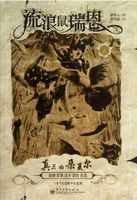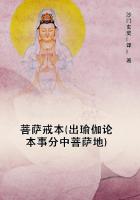Thus the volition of every man has an empirical character, which is nothing more than the causality of his reason, in so far as its effects in the phenomenal world manifest the presence of a rule, according to which we are enabled to examine, in their several kinds and degrees, the actions of this causality and the rational grounds for these actions, and in this way to decide upon the subjective principles of the volition.Now we learn what this empirical character is only from phenomenal effects, and from the rule of these which is presented by experience; and for this reason all the actions of man in the world of phenomena are determined by his empirical character, and the co-operative causes of nature.If, then, we could investigate all the phenomena of human volition to their lowest foundation in the mind, there would be no action which we could not anticipate with certainty, and recognize to be absolutely necessary from its preceding conditions.So far as relates to this empirical character, therefore, there can be no freedom; and it is only in the light of this character that we can consider the human will, when we confine ourselves to simple observation and, as is the case in anthropology, institute a physiological investigation of the motive causes of human actions.
But when we consider the same actions in relation to reason- not for the purpose of explaining their origin, that is, in relation to speculative reason, but to practical reason, as the producing cause of these actions- we shall discover a rule and an order very different from those of nature and experience.For the declaration of this mental faculty may be that what has and could not but take place in the course of nature, ought not to have taken place.Sometimes, too, we discover, or believe that we discover, that the ideas of reason did actually stand in a causal relation to certain actions of man; and that these actions have taken place because they were determined, not by empirical causes, but by the act of the will upon grounds of reason.
Now, granting that reason stands in a causal relation to phenomena; can an action of reason be called free, when we know that, sensuously, in its empirical character, it is completely determined and absolutely necessary? But this empirical character is itself determined by the intelligible character.The latter we cannot cognize; we can only indicate it by means of phenomena, which enable us to have an immediate cognition only of the empirical character.* An action, then, in so far as it is to be ascribed to an intelligible cause, does not result from it in accordance with empirical laws.That is to say, not the conditions of pure reason, but only their effects in the internal sense, precede the act.Pure reason, as a purely intelligible faculty, is not subject to the conditions of time.The causality of reason in its intelligible character does not begin to be; it does not make its appearance at a certain time, for the purpose of producing an effect.If this were not the case, the causality of reason would be subservient to the natural law of phenomena, which determines them according to time, and as a series of causes and effects in time; it would consequently cease to be freedom and become a part of nature.We are therefore justified in saying: "If reason stands in a causal relation to phenomena, it is a faculty which originates the sensuous condition of an empirical series of effects." For the condition, which resides in the reason, is non-sensuous, and therefore cannot be originated, or begin to be.And thus we find- what we could not discover in any empirical series- a condition of a successive series of events itself empirically unconditioned.For, in the present case, the condition stands out of and beyond the series of phenomena- it is intelligible, and it consequently cannot be subjected to any sensuous condition, or to any time-determination by a preceding cause.
*The real morality of actions- their merit or demerit, and even that of our own conduct, is completely unknown to us.Our estimates can relate only to their empirical character.How much is the result of the action of free will, how much is to be ascribed to nature and to blameless error, or to a happy constitution of temperament (merito fortunae), no one can discover, nor, for this reason, determine with perfect justice.
But, in another respect, the same cause belongs also to the series of phenomena.Man is himself a phenomenon.His will has an empirical character, which is the empirical cause of all his actions.There is no condition- determining man and his volition in conformity with this character- which does not itself form part of the series of effects in nature, and is subject to their law- the law according to which an empirically undetermined cause of an event in time cannot exist.For this reason no given action can have an absolute and spontaneous origination, all actions being phenomena, and belonging to the world of experience.But it cannot be said of reason, that the state in which it determines the will is always preceded by some other state determining it.For reason is not a phenomenon, and therefore not subject to sensuous conditions; and, consequently, even in relation to its causality, the sequence or conditions of time do not influence reason, nor can the dynamical law of nature, which determines the sequence of time according to certain rules, be applied to it.















